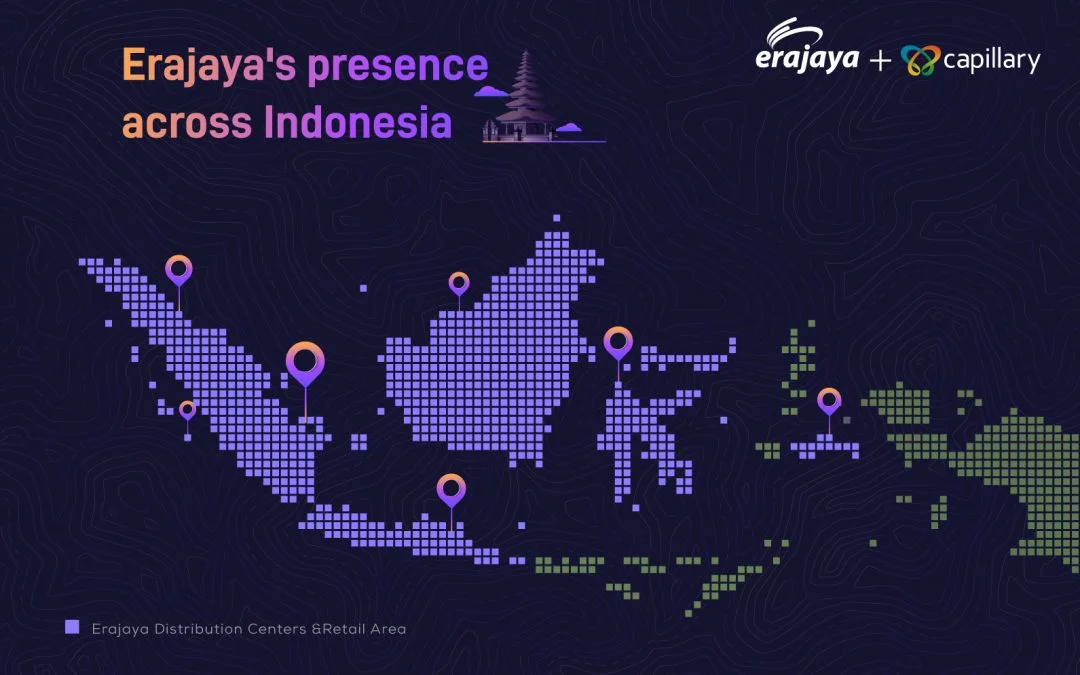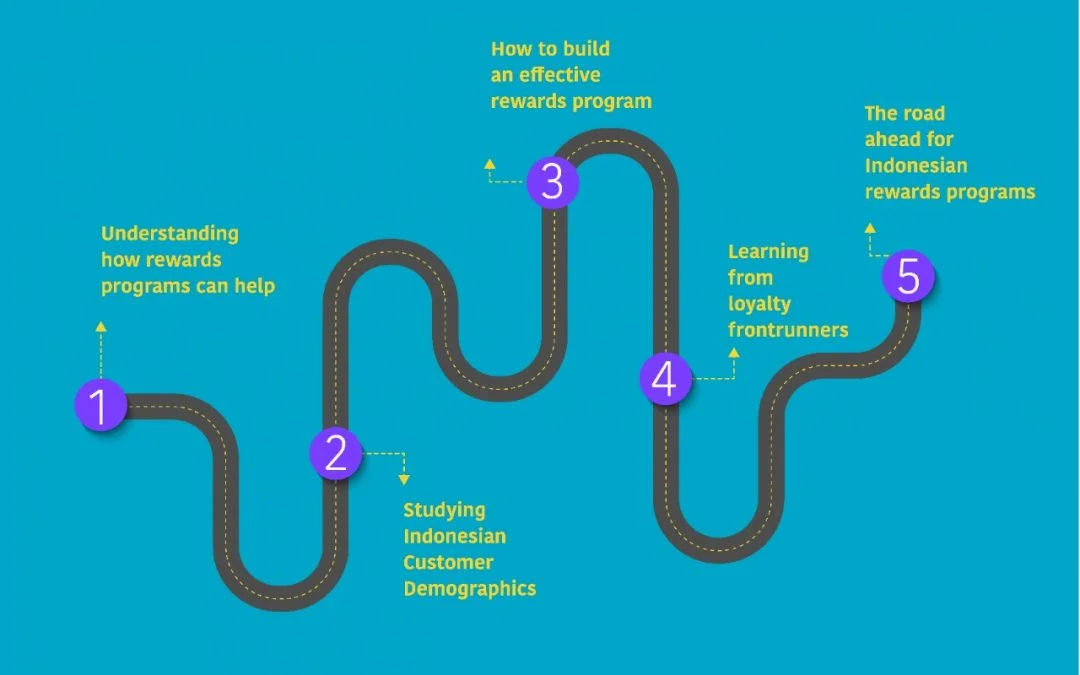- Design industry shaping loyalty programs
- Integrate easily and go live quicker
- Deliver hyper-personalized consumer experiences
Blue Rewards from Al Futtaim Group Shares Loyalty Success Stories and Evolution. Watch Podcast >
Capillary Announces 2nd Annual Captivate 2025 Summit: Transforming Loyalty Management with New AI Tech Read more >

The retail sector in Indonesia is projected to witness a growth of 13.8% CAGR by the year 2024. The reasons for this growth are attributed to the following factors.
In May 2020, the retail sales index reduced by 20.6%. As per a survey conducted by Bank Indonesia, the sale of clothes, as well as recreational and cultural spending, took a huge nosedive. It was the biggest dip since the year 2008. The Coronavirus pandemic has shaken and shattered the Indonesian economy, even as the above survey says that things will improve in the near future and the economy will open up in the next three to six months.
Even though the Covid-19 pandemic threw up a lot of challenges, there have been opportunities for retailers to conduct businesses differently. As the ecosystem gears up to meet the requirements of demand and supply, the ecommerce sector seems to be the beneficiary, as buyers and sellers go online to do business. Online businesses in Indonesia are expected to have a 50% GMV growth in the year 2020. The user base for the ecommerce sector is expected to grow up to more than 12 million users. Under normal circumstances, it would have taken about 2 years to reach this figure.
In the new normal of 2020, consumers prefer to have a safer, convenient and contactless way of doing business and hence the mobile wallet payments are also expected to see a significant usage adoption. OVO, Dana and GoPay are some of the big players in the market.
Consumers are getting cautious and are being careful about how they spend their money; since the future is uncertain at this point in time. Convenience and value for money are the two main factors that are driving spending habits.
An interesting scenario is developing in the retail industry landscape in the country. With an increase in the ecommerce business, retailers will find it pretty challenging to engage customers and maintain brand recall. Conversely, new players will find it rather easier to enter the market, given the situation of lower marketing costs. Traditional loyalty programs might not work in the current situation. Here is looking at new customer loyalty and reward program software trends in this sector.
The customer base is going to be a good mix of Gen X and Y to Baby Boomers – from letters and landlines to Face Time, Snapchat and Mobile Commerce. So it becomes very important to keep them engaged and connected, by using different modes of communication, that is convenient and comfortable for each of them
It is more important than ever to collect data about customers, using loyalty programs. Customer personalization can happen only when there is a significant data pool to work with. Using business intelligence tools and AI, companies will now fuel their marketing efforts towards robust customer engagement.
Customers in today’s times expect a high degree of personalization and say that personalized experiences drive them to be loyal to certain retail brands. This trend is seen in the B2B space that is trying to match customer experiences that are available in the B2C sector. Companies will now have to work towards improved segmentation and relevant communication, to offer this kind of service.
Businesses require automation and integration from their loyalty programs, in order to offer enhanced customer experiences. Manual processes need to be replaced by effective automation, to increase the responsiveness from customers.
Game-like loyalty programs that have features such as leaderboards, points-scoring achievements and competitive elements are on the rise, to attract customer engagement and loyalty. With digital transformation, customers expect gamification as a feature in their loyalty programs; they also look forward to features that are instant and easily attainable.
Customers are no longer attracted to too many purchases to earn and redeem points because they are knowledgeable and highly informed and there are a lot of options in the market. The need of the hour is to reward customers without them spending any money on making purchases. By creating such a scenario, businesses are likely to form deep emotional loyalty and increase customer loyalty. Other benefits of an engagement-based loyalty program are lower advertising and marketing costs, through word-of-mouth and social media.
The good news is that in spite of the pandemic and the threat of recession looming over the retail business horizon, the economic leadership of Indonesia is in safe hands and it would be interesting to see what kind of fiscal reforms will be rolled out to handle the present and future scenarios.

September 4, 2024 | 6 Min Read
Through Era Club, Erajaya has successfully enhanced customer

December 18, 2024 | 4 Min Read
Discover how to design a customer-centric rewards program in

August 20, 2020 | 4 Min Read
The retail sector in Indonesia is projected to witness a gro